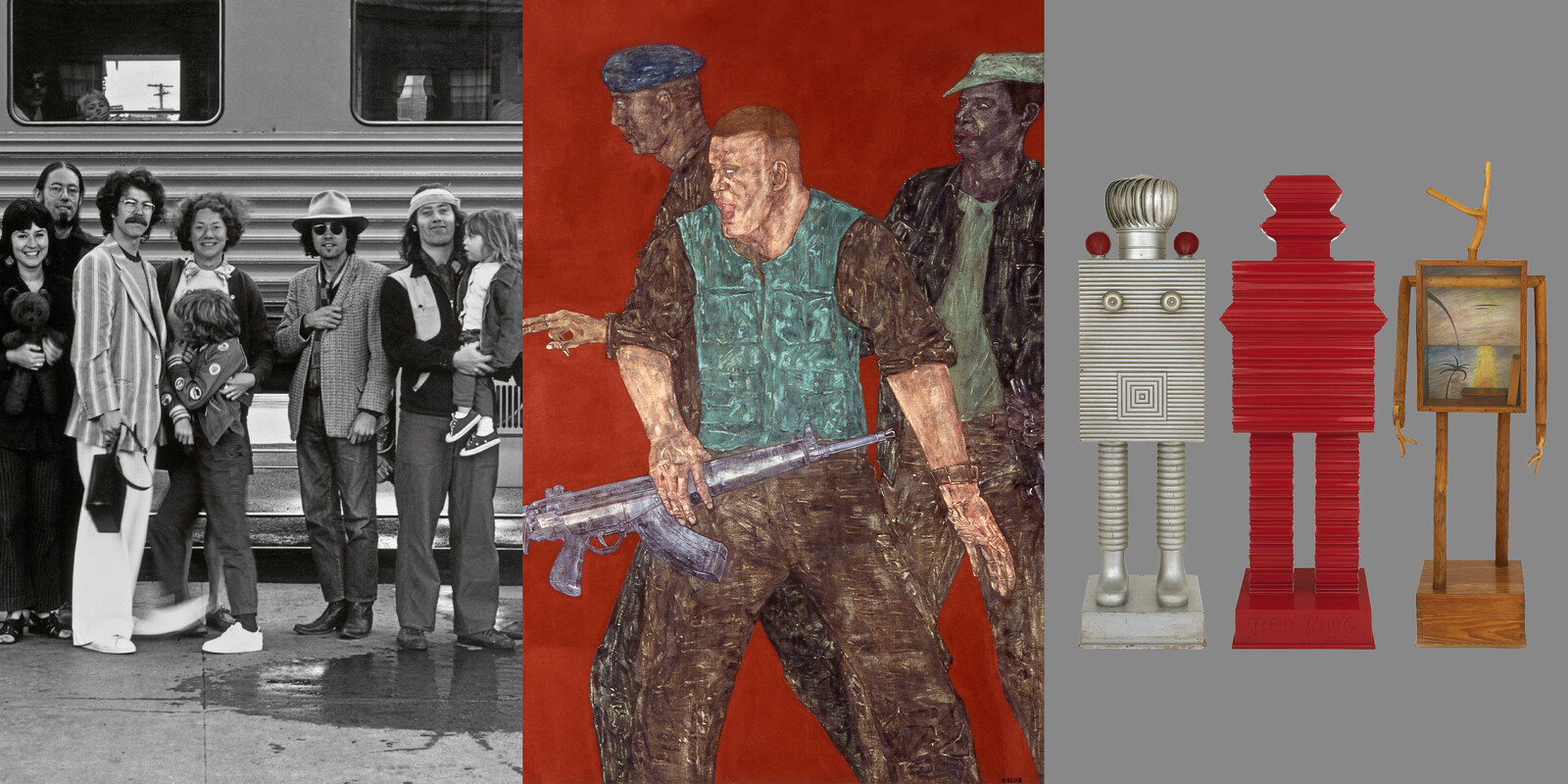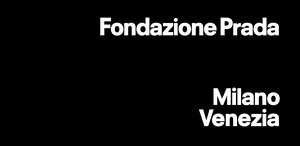H.C. Westermann
Famous Artists from Chicago. 1965-1975
October 20, 2017–January 15, 2018
Fondazione Prada presents a research and information program on the Chicago art scene developed in the aftermath of World War II at its Milan venue. The Fondazione thus further expands its strategy of reinterpretation of those moments in contemporary art history that, although not entirely acknowledged by critics, have nonetheless influenced new generations of artists, from graffiti to neo-digital artists.
The project is focused on the employment of a painting style characterized by political commitment, figurative narratives and radical graphics, and therefore rejected by mainstream New York culture—which was more interested in the abstract and impersonal dimensions of art. The exhibition is structured around three thematic sections conceived and curated by Germano Celant as a whole—Leon Golub, H. C. Westermann, and Famous Artists from Chicago. 1965-1975—all devoted to two generations of artists formed in Chicago between the ’50s and the ’60s. This project further investigates the artistic production of those two decades in a location far from the main artistic centers, from Paris to New York, and explores the development of alternative scenes generated in art schools and academies, namely the School of Art Institute of Chicago, which critically competed or opposed Minimal Art’s industrial and essential approach.
Leon Golub, the first part of the project, is hosted in the Fondazione’s Nord and Sud galleries, and explores two complementary aspects of the artist’s production, displaying 22 acrylic paintings on canvas of spectacular dimensions, realized between the late ’70s and the early ’80s, and more than 58 photographs painted on transparent paper in the ’90s. The exhibition focuses on the political aspects of his work, which openly denounces the brutality of war, racism, torture and violence. Throughout his life, his subjects became more extreme, such as his direct references to the Vietnam war, which, once depicted on large canvases—in the “Mercenaries” series, for instance—become symbols of the paramilitary conditions of contemporary life.
The section devoted to H. C. Westermann reunites on the first floor of the Podium more than 50 sculptures of different dimensions, realized between the ’50s and the ’90s, along with a selection of 20 works on paper. Westermann (Los Angeles, 1922–Danbury, 1981) began his career in Chicago where, after serving in the army as a Marine, studied Applied Arts at the School of the Art Institute. The exhibition explores his peculiar, intense approach to wood carving which he derived from traditional carpentry. The refusal of formalism and his predilection for found materials, along with his nostalgic take on old America and a critical gaze on the brutality of present times, have become key inspiration elements for the next generations of artists, active in Chicago or elsewhere, from Jeff Koons to KAWS (Brian Donnelly).
The last section of the project, Famous Artists from Chicago. 1965-1975, hosted on the ground floor of the Podium, has been conceived as an in-depth analysis of the artists active throughout the ’60s and ’70s, who were featured in shows that questioned traditional exhibition set-up and presentation conventions, such as Hairy Who (1966–67), False Image (1968–69), Nonplussed Some (1968–69), organized at the Hyde Park Art Center in Chicago, and itinerant exhibition Made in Chicago, first presented at the São Paulo Biennial in 1973. The title of the show highlights the necessity, expressed by curator and teacher Don Baum, to launch Chicago artists into the national and international scene. Famous Artists from Chicago. 1965-1975 depicts the energy of the cultural environment of this American city as a center for figurative production, as well as the heterogeneity of the contributions of some artists known as Chicago Imagists.
The project will be accompanied by three publications in the Fondazione’s Quaderni series, which will analyze the themes of the shows through original texts and materials.
Press contacts
T +39 02 56 66 26 34 / press [at] fondazioneprada.org

